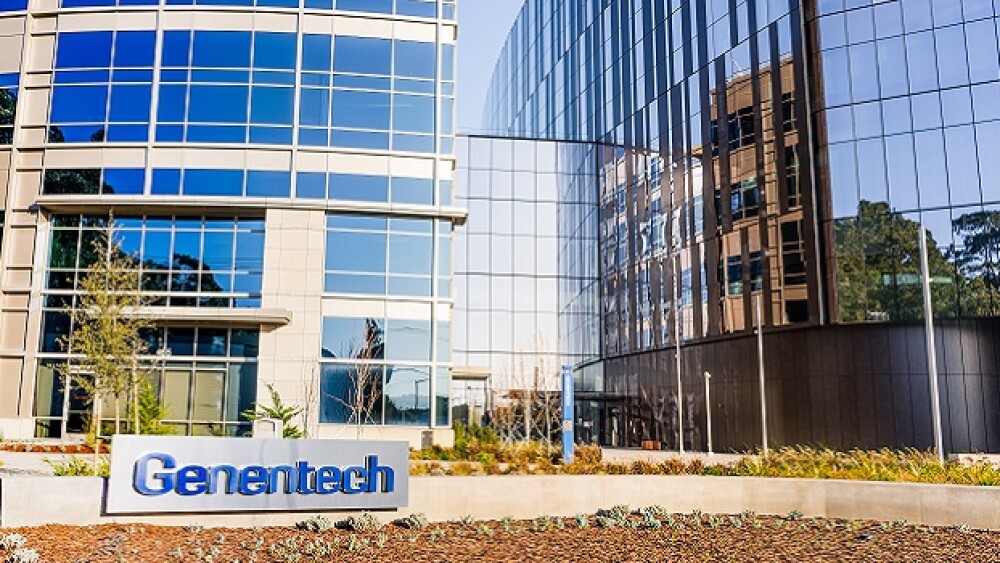After announcing a $1 billion radiopharma deal with PeptiDream, Genentech signed a separate deal with Orionis Biosciences for its molecular glue degraders to target cancer and neurodegeneration.
Pictured: Genentech headquarters/iStock, Sundry Photography
Roche’s Genentech has doubled down on R&D deals, paying Orionis Biosciences $47 million upfront to develop its molecular glues. The deal—potentially worth up to $2 billion—was announced Wednesday, just hours after Genentech’s collaboration with PeptiDream was made public.
Orionis will be responsible for discovery and optimization of small molecule medicines utilizing its molecular glue platform for “challenging targets in major disease areas” according to the announcement, including oncology and neurodegeneration. Genentech will then be responsible for taking any candidate into preclinical and clinical development.
The molecular glues are capable of binding to a protein to mark it for disposal by the body—protein degradation—or causing a protein to bind with another protein to change its function. These glues have been catching the interest of Big Pharma to drug “undruggable” disease targets.
In April 2023, Viennese biotech Proxygen added a third partner to the list of collaborators lining up for its molecular glue degraders. The deal with Merck is the largest for Proxygen, worth up to $2.55 billion. A 2022 collaboration with Merck KGaA is valued at $554 million, while an agreement with Boehringer Ingelheim in 2020 was for an undisclosed amount.
Genentech is Orionis’ second Big Pharma partner. The biotech debuted with a four-year Novartis collaboration in early 2020 for protein degraders across various therapeutic areas.
PeptiDream also scored an R&D deal from Roche’s subsidiary on Wednesday with an upfront payment of $40 million and a deal valuation worth up to $1 billion. Genentech and the Japanese biopharma have been working together since 2015 on its peptides. The latest agreement is for radiopharmaceuticals, a new focus for Genentech.
Peptide-RI drug conjugates use radioisotopes to hit cancer cells directly, minimizing toxicity to the rest of the body. A specific target for the Genentech-PeptiDream collaboration has not yet been disclosed.
According to the companies, approximately half of Roche and Genentech’s pipelines and approved medicines are from successful partnerships with about 220 ongoing collaborations worldwide.
Kate Goodwin is a freelance life science writer based in Des Moines, Iowa. She can be reached at kate.goodwin@biospace.com and on LinkedIn.






